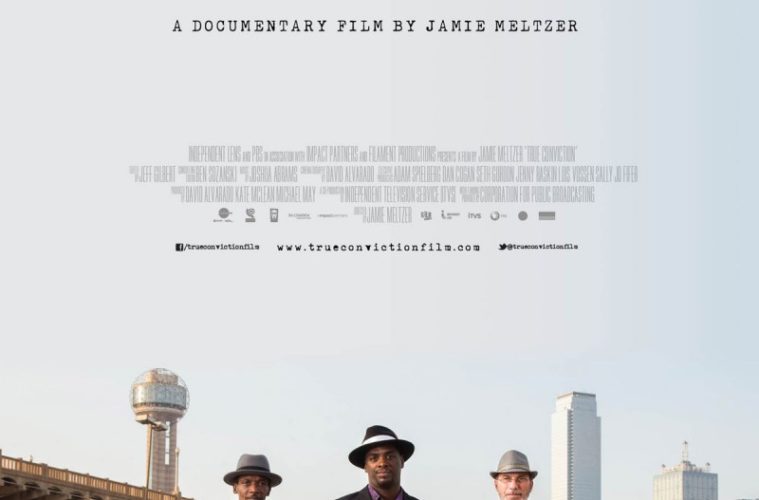Jamie Meltzer’s True Conviction explores a quasi-detective agency in Dallas (seemingly run out of the the Hickory House BBQ restaurant) founded by three men who were wrongfully convicted of crimes they did not commit. Granted $80,000 for each year of wrongful imprisonment by the government, they take on select cases that resemble their own circumstances where either the punishment does not fit the crime or the physical evidence contradicts the testimony given. The justice system should backstop flawed cases but often does not, and in one case, we learn a convict was given a public defender who showed up in court drunk and could not locate a witness in the room.
Led by Christopher Scott, exonerated after spending 13 years in prison for a crime he did not commit once the actual killer confessed, the agency takes on similar cases as Scott balances his obligations to his once estranged family. He’s joined by Stephen Phillips and Johnnie Lindsay — both men find themselves in similar situations — and the latter is a bit more skeptical at first of certain letters, while Phillips’ own life is not in order. A drug addict, he’s blown most of his million dollars on nonsense and finds himself back nearly back to square one once Scott is forced to bail him out following a drug arrest.

True Conviction’s premise and framing device — taking place over long, multi-camera-filmed conversations at a BBQ joint — feels a little like a reality TV show at times, complete with jump cuts that compress extensive conversations into convenient talking points. The device occasionally distracts as Phillips, Lindsay, and Scott take to the road, interviewing specialists in two cases they actively work on during the course of the film. I suspect if they had the volume and resources to hire additional investigators and work on 20 cases a year, this show could be a hit.
In one alarming revelation, the prosecutor in the case of Max Safer, a man convicted at age 24 of murdering four men in a Houston bowling alley robbery, admits that he believes the man is guilty after praying for guidance. Safer rots away in prison, dying of liver cancer, found guilty after a providing a confession which proves to contradict the physical evidence at the crime scene. The tragedy of this God-ordained prosecution is compounded by witness statements which identify an angry bowling alley patron with a history of violence. They, of course, are never called to testify to the contrary.

The trio also works the case of Isaiah Hill, who has spent forty years behind bars for robbing a Holiday Inn in Brownwood, Texas. No one was hurt in the incident and Hill was, of course, convicted by an all-white jury despite flimsy evidence and a racist DA. Scott and Lindsay then proceed to track down who they believe was responsible for the robbery, leading them to the door step of an elderly man in Austin, who they try to convince will not face jail time for coming forward now.
Celebrating small victories, True Conviction — like Jessica Sanders’ 2005 documentary After Innocence (following the heroic work of Barry Scheck’s innocence project) and Berndt Mader’s investigative journalism documentary-narrative hybrid Booger Red — documents a broken system that three flawed men attempt to fix. They are certainly not perfect: Scott’s son accepted a plea deal in conjunction with an robbery and Phillips battles his own demons. A film about the truth requires a the voice of a truthful filmmaker, but at times it feels as if the hand of a reality TV show story editor was crafting character statements rather compressing the conversations for time. However, this is an illuminating documentary highlighting the importance of this work: digging in and asking the tough questions that prosecutors and detectives looking to make a quick arrest simply do not.
True Conviction premiered at Tribeca Film Festival.

